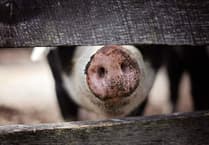NFU Cymru is inviting its members to a virtual event on Thursday, December 12 at midday, to receive an update on the union’s lobbying work on inheritance tax changes and for guidance on succession planning for farming businesses.
The event, which follows the recent Budget announcement around the proposed changes to Agricultural Property Relief (APR) and Business Property Relief (BPR), will hear from Aled Jones, NFU Cymru President, on the work that the union is doing at the highest levels of government to get these changes reversed. The event will also hear from legal and financial advisers who will help clarify what the government has announced and provide some practical guidance on succession planning.
NFU Cymru President Aled Jones said: “NFU Cymru continues to lobby on behalf of our members on the proposed changes to APR and BPR. Since the Budget announcement in October, NFU Cymru has sustained a consistent campaign to UK Government and MPs to highlight the lasting damage such changes could have on Welsh family farms.
“Succession planning is clearly now at the forefront of members’ minds.”
“Alongside an update to our members on our ongoing lobbying activities, the event will hear from legal and financial planning experts, who will clarify what has been announced to date, how this may affect farm businesses, and how best to prepare for structured succession planning in your business,” he added.
The event will also hear from the NFU Economics team; NFU Cymru’s Legal Panel Firms, Agri Advisor and JCP Solicitors and NFU Mutual Financial Services.
In the Autumn Budget, it was announced that from April 6 next year, the UK Government will introduce a tax of 20 per cent on inherited farming assets above £1 million.
The proposal sparked nationwide protests, including a major rally which saw thousands of farmers and supporters march on Whitehall, London last month.
Many farmers argue that while they are asset rich - for example in terms of their land and livestock - they are cash poor and the changes would mean they would have to sell up to be able to pay the tax.





Comments
This article has no comments yet. Be the first to leave a comment.